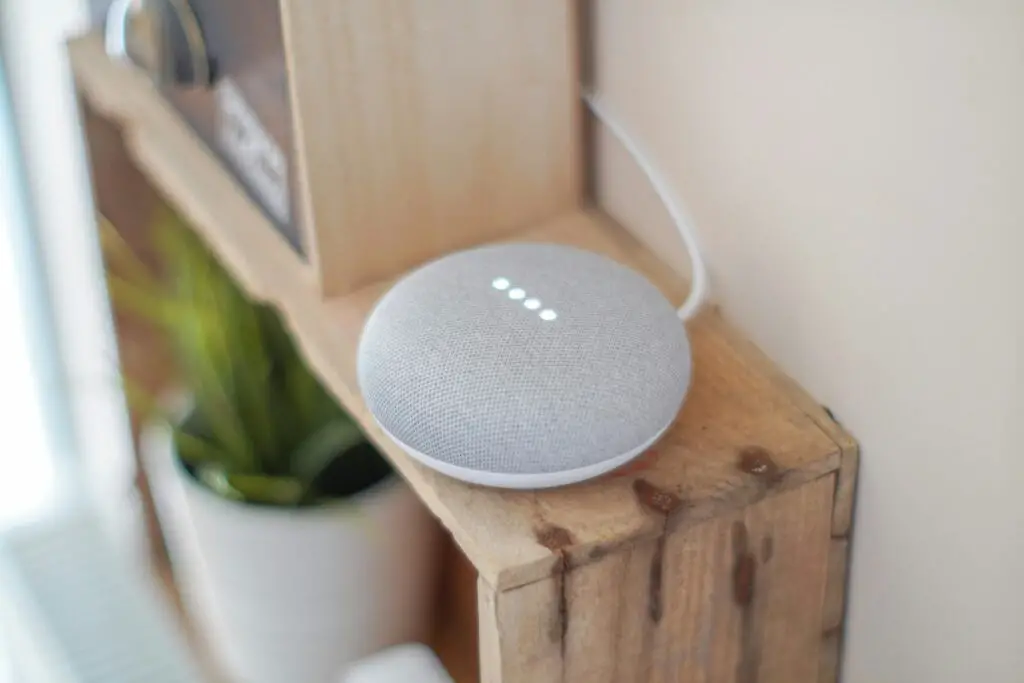The real estate industry is undergoing a major transformation, and artificial intelligence (AI) is at the heart of it. From streamlining transactions to reshaping home valuations, AI is revolutionizing how buyers, sellers, and investors interact with the market. While some changes are expected, such as automated pricing tools, others are more surprising. Here are 12 unexpected ways AI is reshaping the housing market.
1. AI-Powered Virtual Real Estate Agents Are Transforming Home Buying

Gone are the days when buyers had to rely solely on human real estate agents for information and guidance. AI-powered virtual assistants, such as chatbots and machine learning-driven advisors, are now capable of handling many aspects of the home-buying process. These AI agents can answer questions about properties, schedule showings, and even analyze market trends to suggest the best time to buy. Some platforms are integrating AI with augmented reality (AR) to provide immersive virtual tours, allowing buyers to explore homes from anywhere in the world.
AI-driven negotiation tools can also help buyers craft competitive offers based on real-time market conditions. While human agents still play a crucial role, AI is making the process more efficient and accessible. This technology is particularly useful for international buyers or those relocating to different states, who may not have the time to visit properties in person. AI can also personalize property recommendations by learning a buyer’s preferences and adjusting search results accordingly. As AI continues to evolve, the role of real estate agents may shift from transaction facilitators to strategic advisors. While some fear AI could replace human agents entirely, most experts believe it will enhance their ability to serve clients more effectively.
2. AI Is Making Home Valuations More Accurate Than Ever

Determining a home’s value has traditionally been a mix of appraisals, real estate agent estimates, and market comparisons. However, AI-driven valuation models are now outperforming traditional methods by analyzing vast amounts of data in real time. These models consider everything from historical sale prices and economic trends to satellite images and even social sentiment about a neighborhood. AI can detect small details that humans might overlook, such as microtrends within specific zip codes or patterns in buyer behavior. As a result, automated valuation models (AVMs) provide more precise and dynamic home valuations.
Zillow’s Zestimate and Redfin’s home value estimator already use AI to predict home prices, but newer AI-powered tools are taking accuracy even further. Investors and lenders are increasingly relying on AI to assess risk before approving loans or making purchasing decisions. This increased accuracy helps both buyers and sellers make more informed choices, reducing the likelihood of overpaying or undervaluing a home. However, some critics worry that AI could exacerbate pricing disparities or create new market inefficiencies if not properly monitored. Despite these concerns, AI-powered valuations are quickly becoming the industry standard.
3. AI Is Predicting Housing Market Trends with Unmatched Accuracy

Market forecasting has always been a challenge, with analysts relying on historical data, economic indicators, and expert opinions. AI is changing that by using machine learning to process vast datasets and identify patterns that humans might miss. AI algorithms analyze factors such as interest rates, employment rates, migration patterns, and even consumer sentiment on social media. This allows investors, developers, and policymakers to make better-informed decisions about where and when to invest. AI-powered predictive models can alert buyers to potential market crashes or rapid price increases before they happen. This gives both individual homeowners and institutional investors an edge in a competitive market.
For example, AI has been used to predict gentrification trends, allowing buyers to purchase homes in up-and-coming neighborhoods before prices skyrocket. Real estate investment firms are increasingly using AI to determine the best locations for new developments. However, there are concerns that AI-driven speculation could contribute to housing bubbles if too many investors act on the same predictions. Still, the ability to forecast market shifts with greater accuracy is a game-changer for real estate professionals and everyday buyers alike.
4. AI Is Revolutionizing Mortgage Lending and Risk Assessment

Applying for a mortgage can be a lengthy and complex process, often requiring extensive documentation and human review. AI is streamlining this process by automating risk assessments and expediting approvals. Machine learning models analyze an applicant’s financial history, employment status, spending habits, and creditworthiness in a matter of seconds. Unlike traditional underwriting, which relies on fixed criteria, AI can assess alternative data sources such as rent payment history and utility bills to evaluate credit risk more fairly.
This has the potential to expand homeownership opportunities for those who may not fit traditional lending criteria. Some banks and fintech companies are already using AI to approve mortgage applications faster and with fewer errors. AI can also detect fraudulent applications more effectively by identifying inconsistencies that human underwriters might miss. However, there are concerns about algorithmic bias, as AI models can sometimes reflect and even reinforce systemic inequalities. Regulators are now focusing on ensuring that AI-driven lending practices remain fair and transparent. While AI won’t eliminate the need for human oversight in lending, it is making the process more efficient and accessible.
5. AI Is Streamlining Property Management and Maintenance

Property management has traditionally been a time-consuming process, requiring landlords and property managers to handle tenant inquiries, schedule repairs, and monitor building maintenance. AI is now automating many of these tasks, making property management more efficient and cost-effective. AI-driven chatbots can handle tenant communication, answering questions about rent payments, lease agreements, and maintenance requests 24/7. Smart maintenance systems use AI to predict equipment failures before they happen, reducing costly emergency repairs.
For example, AI-powered HVAC systems can analyze usage patterns and environmental data to optimize heating and cooling, saving property owners money. AI can also assess building conditions using IoT (Internet of Things) sensors, automatically scheduling maintenance when needed. Additionally, AI-powered security systems can detect suspicious activity in real-time, improving building safety. These advancements make it easier for property owners to manage multiple properties without needing large teams. While some fear AI could replace human property managers, it is more likely to enhance their ability to provide faster and more efficient service.
6. AI Is Enhancing Smart Home Technology

Smart home technology has been growing for years, but AI is making these systems even more intuitive and responsive. AI-powered home assistants, like Amazon Alexa and Google Assistant, are learning homeowners’ habits and preferences to automate daily routines. Smart thermostats use AI to adjust temperatures based on weather forecasts and occupancy patterns, reducing energy costs. AI-driven security cameras can distinguish between normal activity and potential threats, alerting homeowners only when necessary. Even household appliances like refrigerators and washing machines are now integrating AI to optimize energy use and predict maintenance needs.
AI-powered lighting systems adjust brightness and color based on the time of day, improving comfort and energy efficiency. Voice-controlled smart home systems are also becoming more personalized, responding to individual household members differently. AI can even help with home accessibility, assisting elderly or disabled individuals with daily tasks through automation and voice commands. These AI-driven enhancements are making homes more comfortable, secure, and energy-efficient. As AI continues to evolve, we can expect even greater integration between smart home devices and everyday life.
7. AI Is Changing the Way Investors Find Profitable Properties

Real estate investors have always relied on data to find the best properties, but AI is now giving them an unprecedented advantage. AI-powered investment platforms analyze market trends, rental yields, and neighborhood growth patterns in real time. These platforms use machine learning to identify the most profitable opportunities based on historical data and future projections. AI can even analyze factors like school ratings, crime rates, and local business growth to determine long-term property value. Some AI tools can assess social media sentiment to predict shifts in neighborhood desirability before they become widely recognized.
Institutional investors are using AI to build large-scale rental portfolios, quickly identifying undervalued properties. AI-powered risk analysis helps investors avoid bad deals by detecting potential red flags in a property’s financial history. Even crowdfunding real estate platforms are integrating AI to match investors with the best opportunities based on their risk tolerance and goals. While traditional investors still rely on experience and intuition, AI is providing data-driven insights that reduce guesswork. Those who embrace AI-driven real estate investing are gaining a competitive edge in an increasingly complex market.
8. AI Is Speeding Up Real Estate Transactions

The process of buying or selling a home can be slow and filled with paperwork, but AI is changing that by automating many of the steps involved. AI-powered platforms are expediting everything from listing properties to processing legal documents. Automated document analysis tools can review contracts in seconds, flagging inconsistencies or missing details. AI chatbots can guide buyers and sellers through the closing process, reducing the need for human intervention. Some companies are even using AI to generate real estate contracts automatically, ensuring compliance with legal requirements.
AI-powered fraud detection systems can identify potential issues in title deeds, reducing the risk of disputes. Additionally, AI is being used in escrow services to verify transactions more quickly and securely. These advancements are making real estate transactions faster, more efficient, and less expensive. While human oversight is still needed in some areas, AI is drastically cutting down on the time it takes to complete a sale. Buyers and sellers who embrace AI-driven platforms are gaining a major advantage in today’s fast-moving market.
9. AI Is Helping Reduce Housing Discrimination

One of the biggest challenges in real estate has been discrimination in lending, renting, and home appraisals. AI is now being used to create more objective decision-making processes, reducing bias in housing transactions. AI-driven mortgage approval systems assess financial data without considering race, gender, or other demographic factors. Similarly, AI-powered rental screening tools focus on a tenant’s creditworthiness rather than subjective landlord preferences. Some AI models are also being used to detect biased appraisals by analyzing property values in similar neighborhoods.
Fair housing advocates are working with AI developers to ensure these systems promote equity and inclusivity. However, concerns remain that AI can still reflect societal biases if the data it’s trained on is flawed. To address this, regulators are pushing for greater transparency in AI decision-making. When properly implemented, AI has the potential to create a fairer and more accessible housing market. As AI continues to evolve, it may play a key role in eliminating discrimination and ensuring equal opportunities for all homebuyers and renters.
10. AI Is Improving Home Staging and Virtual Tours

Selling a home often requires making it look as appealing as possible, and AI is making home staging more effective than ever. AI-powered software can digitally stage homes, allowing potential buyers to see different interior designs without physically altering the space. Virtual staging platforms use AI to replace outdated furniture, adjust lighting, and even suggest home improvements. AI-driven virtual tour technology allows buyers to explore properties remotely through realistic 3D walkthroughs. Some platforms even use AI to personalize tours based on a buyer’s preferences, highlighting the features they care about most.
AI-generated floor plans and home layout recommendations help buyers visualize remodeling possibilities. These innovations make home shopping more immersive, reducing the need for in-person visits. AI is also being used in real estate photography to enhance listing photos, making homes look their best. Sellers who leverage AI-driven staging and virtual tour technology are attracting more buyers and selling homes faster. As AI technology improves, expect even more interactive and personalized real estate experiences.
11. AI Is Enhancing Urban Planning and Smart City Development

AI is playing a major role in how cities and neighborhoods are being designed for the future. Urban planners are using AI to analyze traffic patterns, environmental data, and population growth to create more sustainable communities. AI-driven simulations help city officials test different development scenarios before breaking ground. Smart city initiatives are leveraging AI to optimize public transportation, reduce congestion, and improve energy efficiency. AI-powered environmental monitoring systems can track pollution levels and recommend eco-friendly solutions.
Even zoning and land use decisions are being influenced by AI-generated data models. These advancements are leading to more efficient, livable, and resilient urban spaces. AI is also being used to identify underutilized land for redevelopment, helping to address housing shortages. Cities that embrace AI-driven planning are creating smarter infrastructure and better quality of life for residents. As urban populations continue to grow, AI’s impact on city development will only become more significant.
12. AI Is Redefining Home Insurance and Risk Assessment

AI is revolutionizing the home insurance industry by making risk assessments more accurate and personalized. Machine learning models analyze data from smart home devices, weather patterns, and past claims to predict potential risks. AI-driven underwriting can offer customized insurance policies based on a home’s unique characteristics. Fraud detection algorithms identify suspicious claims, reducing costs for insurers and policyholders. AI-powered chatbots streamline the claims process, resolving issues faster and with fewer disputes.
Homeowners who integrate smart security and maintenance systems may receive lower insurance rates based on AI risk assessments. These advancements are making home insurance more data-driven and efficient. While AI cannot eliminate all risks, it is helping insurers and homeowners make better-informed decisions. As AI technology advances, expect even more personalized and proactive insurance solutions.
